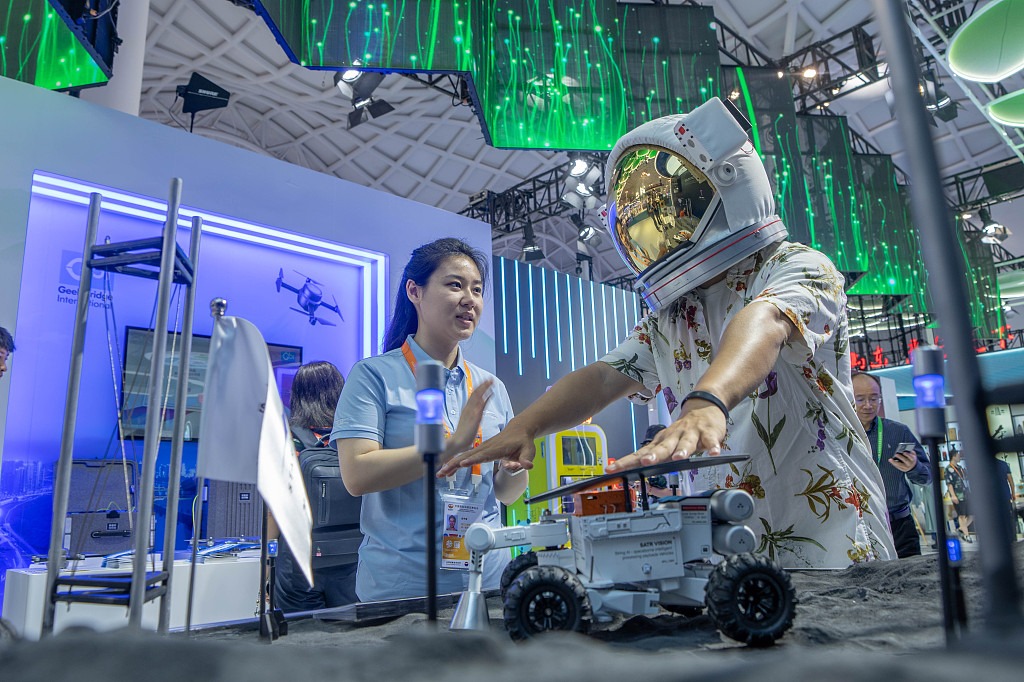Billions in taxes being cut for entrepreneurs


Micro businesses also will see gains, Li tells executive meeting
China will cut taxes by another 60 billion yuan ($9.5 billion) to drive innovation and entrepreneurship and boost the development of small and micro businesses, the State Council decided in an executive meeting presided over by Premier Li Keqiang on Wednesday.
The move aims to reduce the cost of innovation and entrepreneurship, energize small and micro businesses and spur job creation.
In an effort to implement blueprints set out by the Central Economic Work Conference and the Government Work Report, the annual taxable income threshold of small and micro businesses eligible for halved income tax will be raised from 500,000 to 1 million yuan. The per unit value of newly purchased R & D instruments and equipment eligible for one-time tax deductions will be raised from 1 million yuan to 5 million yuan. The two measures will be in place from Jan 1, 2018, to Dec 31, 2020.
President Xi Jinping has emphasized that we need to encourage more entities to innovate, start businesses and support innovations by small and medium-sized enterprises.
"We must work hard to cut the cost of the real economy, bring out the vitality of all market entities by lifting the discriminatory restrictions and hidden barriers in taxation and other respects, and see that all policy incentives for SMEs and micro businesses are fully delivered," Xi said.
In his Government Work Report delivered in March, Li said the government will further lighten the corporate tax burden. Far greater numbers of small, low-profit businesses will see their income tax halved and the ceilings on deductible business purchases significantly raised. The pilot preferential tax policies for venture capital investment and angel investment will be extended nationwide, he said.
One outcome of the meeting states the tax incentive enjoyed by venture capital firms and angel investors that allows 70 percent of their investment to be deducted from the taxable income of the seed and early stage high-tech startups they finance will be extended nationwide. The policy has been piloted in the country's eight innovation and reform experimental zones, including the Beijing-Tianjin-Hebei area, Shanghai and Guangdong, as well as in the Suzhou Industrial Park.
Such tax cuts will be implemented retroactively from Jan 1 for corporate income tax and from July 1 for personal income tax this year.
The State Council also decided at the meeting to abolish preclusion of expenses of commissioned overseas R & D from additional tax deduction. The time limit for the capital loss carry-over of high-tech firms and technological SMEs will be extended from 5 to 10 years pending approval by the Standing Committee of the National People's Congress. All enterprises also will see the tax deduction for their employee training costs raised to 8 percent-the same rate as high-tech companies enjoy-from the current 2.5 percent. These three measures are effective starting Jan 1 this year.
Li said that while this round of tax cuts is targeted at small and micro businesses to spur innovation, the entire economy stands to benefit. Though being the biggest job providers, small and micro businesses have long had difficulty accessing affordable financing. Supporting their development is critical to ensuring employment.
The State Council also adopted measures of stamp duty relief at the meeting for books of account starting May 1.
All the measures are expected to reduce the corporate tax burden by over 60 billion yuan. The move follows a 400 billion yuan tax cut package for 2018, which was rolled out at a State Council executive meeting on March 28.
Li said that while the well-established firms receive due attention, greater support must be extended to all growth enterprises, including SMEs and micro businesses.
"Tax cuts and fiscal input are like the two sides of a coin. Both can catalyze innovation," he said.




































